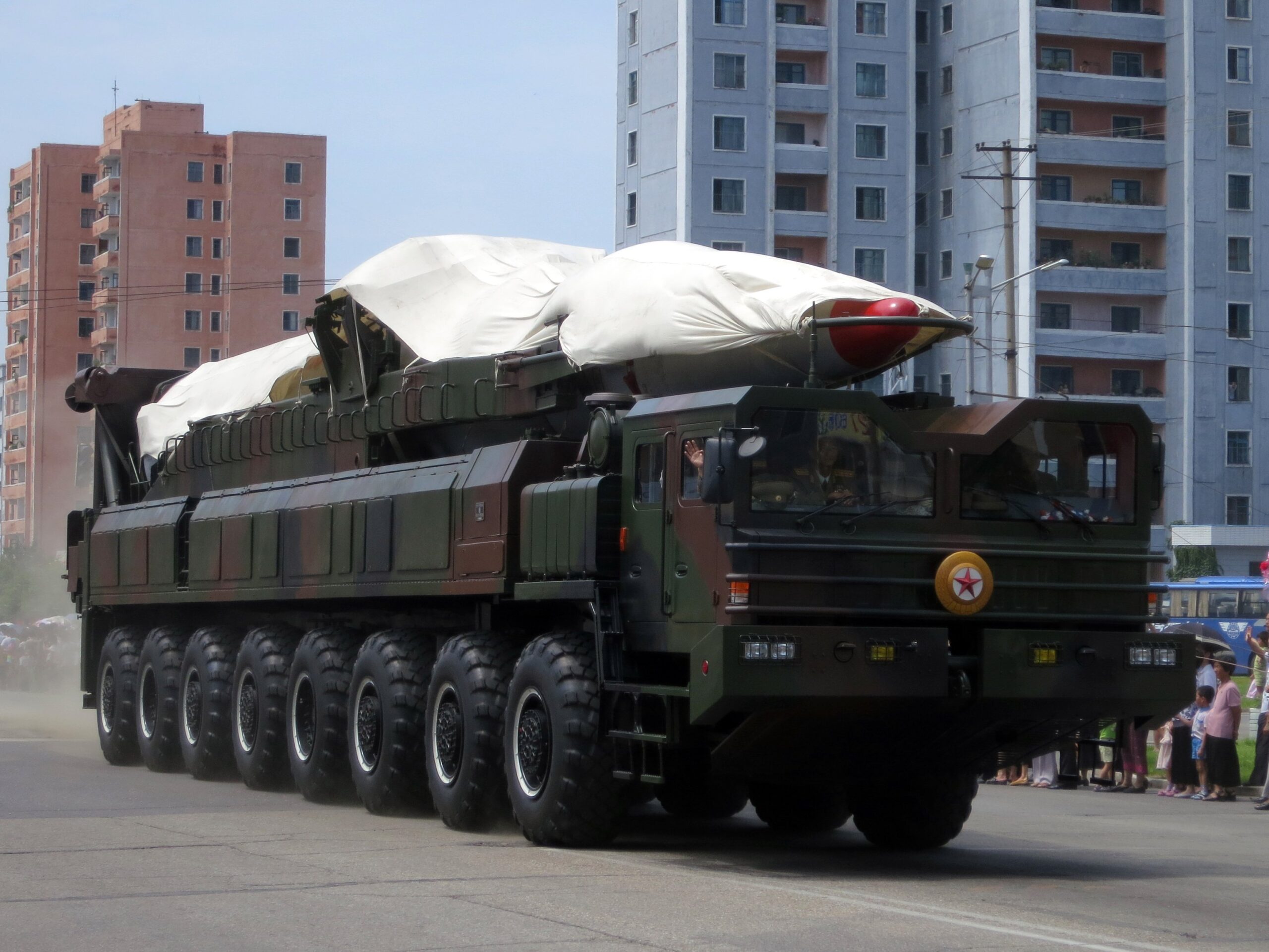![]()
North Korea recently carried out a series of missile launches which have significantly escalated tensions with South Korea. Pyongyang has indicated that the launches were intended as a response to joint U.S.-South Korean military drills. Although defensive in nature, North Korea alleges that these drills pose an existential threat to the country. North Korea has a history of taking provocative measures to pressure South Korea and its allies. In line with recent escalation, many expect North Korea to carry out a new round of nuclear testing in the near future.
Chronology
The most recent barrage began on Nov. 1, 2022, when North Korea fired a single-day record 23 missiles into the seas around South Korea. Multiple of these weapons are believed to have been ballistic missiles. South Korea recovered one of the weapons, which was identified as an SA-5 surface to air missile. The South Korean Defense Ministry condemned the usage of this projectile, claiming that it represents a violation of a 2018 inter-Korean military pact.
These launches continued throughout the week. According to the Korean Central News Agency, the official state run of North Korea, the country fired over 80 more missiles in the three days between the 2nd and 5th of November. These included one short-range Intercontinental Ballistic Missile (ICBM), which appears to have malfunctioned while mid-air. The Japanese government ordered several evacuations across northern Japan, believing that the missile was flying over their territory. This was later deemed to be a misjudgement.
North Korean officials justified the launches by claiming that recently reinstated joint U.S.-South Korean “Vigilant Storm” aerial drills effectively constituted a “rehearsal for invasion” (Reuters). However, other officials commented that their missile launches were simulations to “mercilessly” strike South Korean targets.
The “Vigilant Storm” drills began on October 31st and ended on November 5th. Although initially planned to conclude sooner, the U.S. announced a decision to extend the drills in response to North Korean missile launches. The drills included 240 warplanes, including F-35 fighters from both the United States and South Korea. The final day of drills included flyovers from two B-1B bombers, a preferred U.S. tool in displaying military might. These operations were the largest joint aerial drills conducted by the two nations to date.
The Trump administration suspended large-scale joint operations between the U.S. and South Korean militaries in 2019. The two nations resumed such drills earlier this year, under the Biden administration. Many expected that recently elected president Yoon Suk-yeol would adopt a harsher approach to North Korea. South Korea remains committed to deterrence, in partnership with the United States. The recent missile launches have demonstrated the fortitude of the U.S.-South Korean alliance.
Fears of Escalation
U.S. intelligence believes that North Korea has completed preparations to conduct a nuclear test. This would be the first such test in over five years, since North Korea detonated what it claimed to be a hydrogen bomb on Sept. 3, 2017. Independent sources were unable to confirm the claim that the weapon detonated was specifically a hydrogen bomb, but the nuclear test caused a seismic event with a 6.1 magnitude.
North Korea has frequently drawn intentional condemnation for their aggressive behavior. The U.N. Security Council passed resolutions in 2006, 2009, 2013, 2016, 2017, and 2020 condemning North Korea for nuclear testing. These resolutions have included numerous economic sanctions designed to pressure Kim Jong Un’s regime. They have also attempted in vain to ban Pyongyang from launching ballistic missiles and continuing nuclear testing.
Considering North Korea’s recent escalations, many fear that another nuclear test may be on the horizon. U.S. and South Korean officials believe that North Korea recently concluded preparations for another nuclear test. They have also reaffirmed that the usage of any nuclear weapons in potential conflict would bring disastrous consequences. In a Nov. 3 press conference, South Korean Minister of National Defense Lee Jong-sop stated, “Secretary [Lloyd] Austin and I affirmed that any nuclear attack by the DPRK [Democratic People’s Republic of Korea], including the use of tactical nuclear weapons, is unacceptable and [sic] result in the end of Kim Jong-un regime by the overwhelming and decisive response of the alliance. This is a strong warning against the DPRK.”












